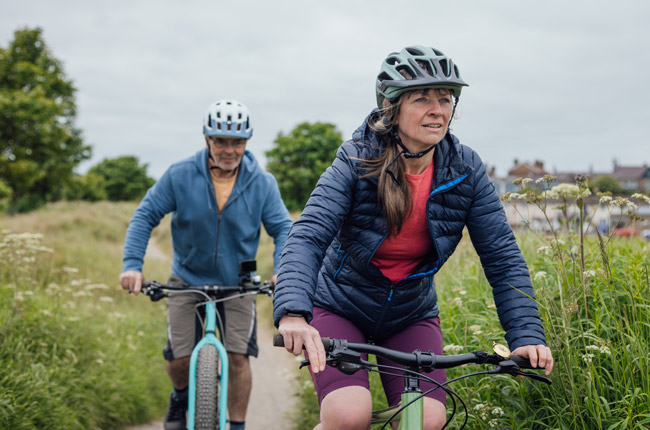More prostate cancer research
Identifying which nutrients may cause or protect against prostate cancer
Our research hypothesises that folate, vitamin B12, & iron may increase cancer risk; selenium, vitamin D, E & lycopene may protect against
ERADICATE exercise trial to improve tumour perfusion alongside radiotherapy for prostate cancer patients
The ERADICATE exercise trial aims to increase the flow of oxygen to the prostate tumour alongside radiotherapy.
Chronic platelet activation – a major link between diet, lifestyle and cancer risk?
We’re funding the first comprehensive prospective study on chronic platelet activation in healthy subjects and subsequent cancer risk
More colorectal cancer research
Height and cancer risk: energy restriction and genetic variation
This WKOF-funded research aims to shed light on the mechanisms behind adult-attained height and cancer risk
Advanced Glycation End Products: are exposures associated with colorectal cancer risk and survival?
Mazda Jenab is researching high fat/protein or animal-source foods, and how they impact colorectal cancer
Sleep quality, fatigue and inflammation after colorectal cancer treatment
We’re funding a new research project to quantify and understand how daily eating and physical behaviour patterns are associated with sleep quality, fatigue and inflammation in people with colorectal cancer
Latest research-related news and blogs

New study shows benefits of physical activity for colon cancer survivors
The CO21 CHALLENGE Trial shows that exercise after colon cancer treatment resulted in longer disease-free survival

Why is alcohol so popular among older drinkers while young people cut back?
Alcohol is a way of life in societies around the world – yet there are signs of change as young adults are drinking less than previous generations. We spoke to Prof Richard Cooke about the psychology of drinking alcohol

Were you part of the Women’s Cohort Study?
This year marks the 30th anniversary of the UK Women’s Cohort Study, the initial funding for which came from us
Latest research-related news and blogs

New study shows benefits of physical activity for colon cancer survivors
The CO21 CHALLENGE Trial shows that exercise after colon cancer treatment resulted in longer disease-free survival

Why is alcohol so popular among older drinkers while young people cut back?
Alcohol is a way of life in societies around the world – yet there are signs of change as young adults are drinking less than previous generations. We spoke to Prof Richard Cooke about the psychology of drinking alcohol

Were you part of the Women’s Cohort Study?
This year marks the 30th anniversary of the UK Women’s Cohort Study, the initial funding for which came from us
Latest research-related news and blogs

New study shows benefits of physical activity for colon cancer survivors
The CO21 CHALLENGE Trial shows that exercise after colon cancer treatment resulted in longer disease-free survival

Why is alcohol so popular among older drinkers while young people cut back?
Alcohol is a way of life in societies around the world – yet there are signs of change as young adults are drinking less than previous generations. We spoke to Prof Richard Cooke about the psychology of drinking alcohol

Were you part of the Women’s Cohort Study?
This year marks the 30th anniversary of the UK Women’s Cohort Study, the initial funding for which came from us
Latest research-related news and blogs

New study shows benefits of physical activity for colon cancer survivors
The CO21 CHALLENGE Trial shows that exercise after colon cancer treatment resulted in longer disease-free survival

Why is alcohol so popular among older drinkers while young people cut back?
Alcohol is a way of life in societies around the world – yet there are signs of change as young adults are drinking less than previous generations. We spoke to Prof Richard Cooke about the psychology of drinking alcohol

Were you part of the Women’s Cohort Study?
This year marks the 30th anniversary of the UK Women’s Cohort Study, the initial funding for which came from us